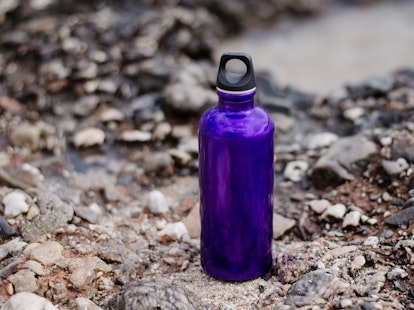The US CPSC has published a Direct Final Rule (DFR) to revise the exemption of seven types of plastic from third party testing for regulated phthalates in toys and childcare articles.
The US Consumer Product Safety Commission (CPSC) has published a Direct Final Rule (DFR) to revise the exemption of seven types of plastic from third party testing for regulated phthalates in toys and childcare articles. Unless adverse comments are received, the DFR will become effective on April 25, 2018.
In late 2017, we informed you that the US Consumer Product Safety Commission (CPSC) had published two final rules relating to third party testing for regulated phthalates and certain plastics in toys and child care articles. These final rules contain the following provisions:
Exempting seven types of plastic from third party testing for six regulated phthalates [1] (16 CFR 1308). These became effective in September 2017
Restricting a total of eight phthalates in children’s toys and child care articles [2] (16 CFR 1307). This final rule for phthalates will become effective on April 25, 2018
On January 26, 2018, the CPSC published a direct final rule (DFR) in the Federal Register (83 FR 3583 [3]) to exempt seven types of plastic from third party testing for the eight regulated phthalates under the phthalates final rule.
Unless adverse comments are received by February 26, 2018, this DFR will become effective on April 25, 2018. This date is identical to the effective date for the final rule on eight phthalates.
Highlights of the DFR are summarized in Table 1.
| 16 CFR 1308 | ||
|---|---|---|
| Prohibition of Children’s Toys and Child Care Articles Containing Specified Phthalates: Revision of Determinations Regarding Certain Plastics | Prohibition of Children’s Toys and Child Care Articles Containing Specified Phthalates: Determinations Regarding Certain Plastics | |
| Scope | Toys and child care articles containing ABS, GPPS, HIPS, MIPS, PE, PP,and SHIPS | |
| Phthalate | BBP, DBP, DEHP, DCHP, DHEXP (DnHP), DIBP, DPENP and DINP | BBP, DBP, DEHP, DINP, DNOP and DIDP |
| Remark | Exempt from third party testing | Exempt from third party testing |
| Effective Date | April 25, 2018 | September 2017 |
Table 1
| Item | Acronym | CAS | Phthalate | Item | Acronym | CAS | Phthalate | |
|---|---|---|---|---|---|---|---|---|
| 1 | BBP | 85-68-7 | Butylbenzyl | 6 | DIBP | 84-69-5 | Diisobutyl | |
| 2 | DBP | 84-74-2 | Di-n-butyl | 7 | DIDP | 26761-40-0 & 68515-49-1 | Diisodecyl | |
| 3 | DCHP | 84-61-7 | Dicyclohexyl | 8 | DINP | 28553-12-0 & 68515-48-0 | Diisononyl | |
| 4 | DEHP | 117-81-7 | Di(2-ethylhexyl) | 9 | DNOP | 117-84-0 | Di-n-octyl | |
| 5 | DHEXP (DnHP) | 84-75-3 | Di-n-hexyl | 10 | DPENP | 131-18-0 | Di-n-pentyl |
DEFINITIONS
Table 2
| Item | Acronym | Plastic |
|---|---|---|
| 1 | ABS | Acrylonitrile butadiene styrene |
| 2 | GPPS | General purpose polystyrene |
| 3 | HIPS | High-impact polystyrene |
| 4 | MIPS | Medium-impact polystyrene |
| 5 | PE | Polyethylene |
| 6 | PP | Polypropylene |
| 7 | SHIPS | Super high-impact polystyrene |
Table 3
SGS is committed to providing information about development in regulations for consumer products as a complimentary service. Through a global network of laboratories, SGS provides a wide range of services including physical/mechanical testing, analytical testing and consultancy work for technical and non-technical parameters applicable to a comprehensive range of consumer products. Please do not hesitate to contact us for further information.
Next step:
Stakeholders are advised to comply with the latest requirements for phthalates in toys and child care articles for the US market.
For enquiries, please contact:
Hingwo Tsang
Global Information and Innovation Manager
t: +852 2774 7420
Stay on top of regulatory changes within your industry: subscribe to SafeGuardS!
Read more articles for the Consumer Goods and Retail industry
© SGS Group Management SA - 2018 - All rights reserved - SGS is a registered trademark of SGS Group Management SA. This is a publication of SGS, except for 3rd parties’ contents submitted or licensed for use by SGS. SGS neither endorses nor disapproves said 3rd parties contents. This publication is intended to provide technical information and shall not be considered an exhaustive treatment of any subject treated. It is strictly educational and does not replace any legal requirements or applicable regulations. It is not intended to constitute consulting or professional advice. The information contained herein is provided “as is” and SGS does not warrant that it will be error-free or will meet any particular criteria of performance or quality. Do not quote or refer any information herein without SGS’s prior written consent.


